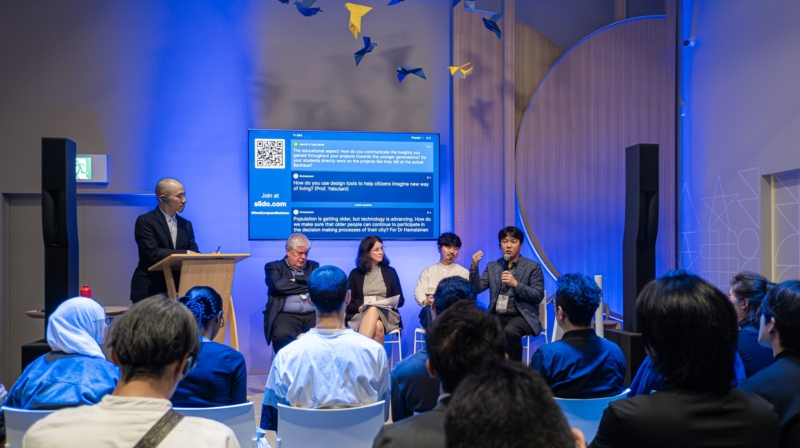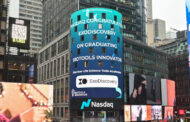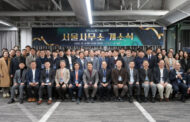On May 13, 2025, researchers from UNIST presented innovative urban design strategies aimed at combating regional depopulation during the EXPO 2025 Osaka in Japan.
Professor Seungho Park-Lee of the Department of Design, alongside Professors Gihyoug Cho and Jeongseob Kim of the Department of Civil, Urban, Earth, and Environmental Engineering at UNIST, participated in a panel discussion hosted by the European Union (EU). The event, titled “Shaping Urban Futures: Design, Technology & Democracy,” focused on exploring new policies to address challenges related to regional decline and decreasing populations.
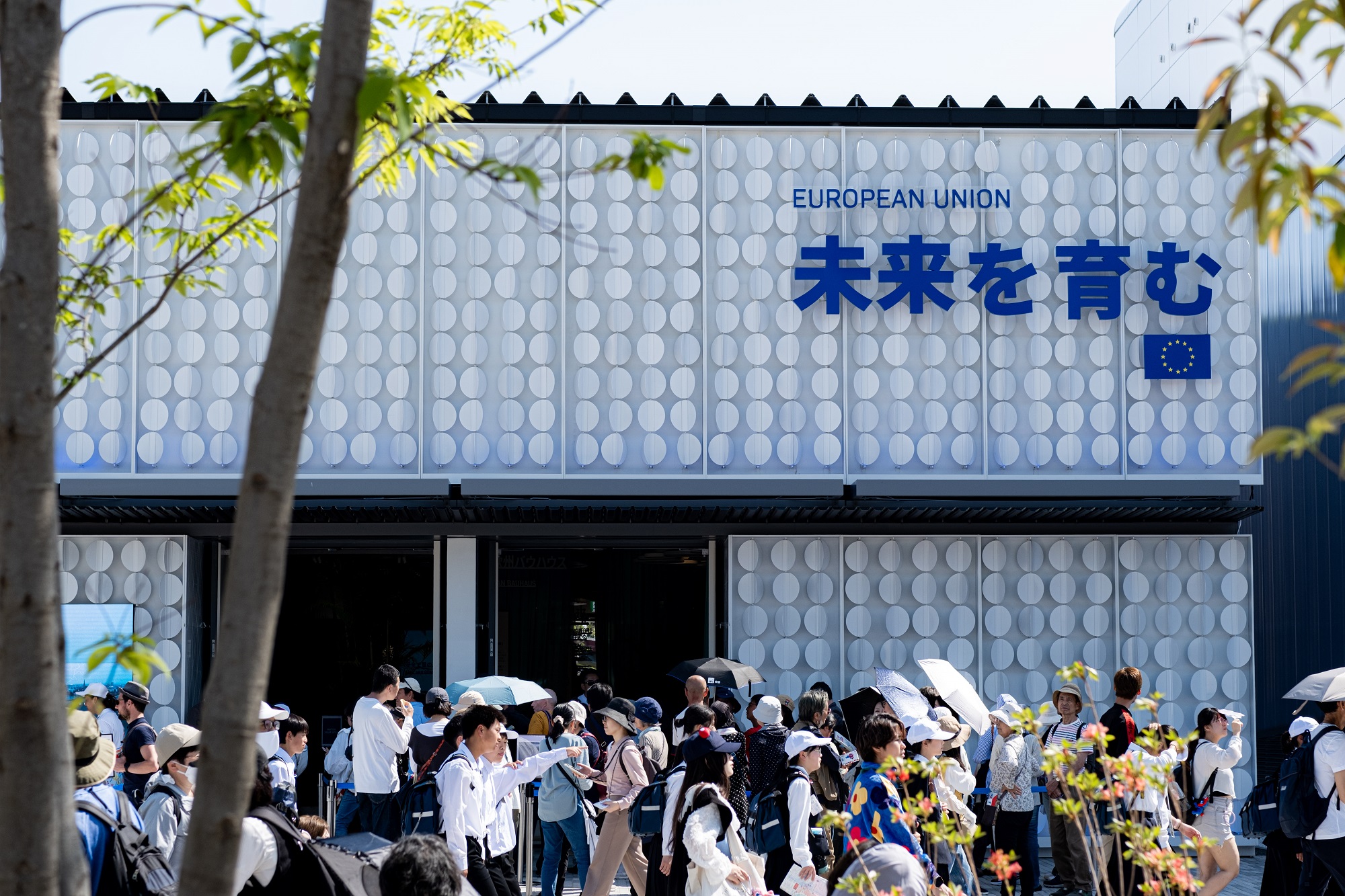
A photograph of the EXPO 2025 Osaka venue where the international forum took place (EU Pavilion).
The panel discussion commenced with a keynote speech by Henna Virkkunen, European Commission Executive Vice-President for Tech Sovereignty, Security, and Democracy, who is also a former Minister of Education for Finland. She emphasized that “Digital transformation is not just about technology, but about people and communities,” and stated that “[C]ities that harmonize design, technology, and citizen participation can create more inclusive and resilient societies.”
Professor Gihyoug Cho highlighted ongoing citizen engagement and technological integration projects in Miryang and Andong, Korea, which are designed to develop future urban environments. He underscored that “[D]igital technology is a vital means for creating citizen-centered policies in declining cities,” and stressed that “[F]uture cities should serve as laboratories for continuous policy experimentation.”
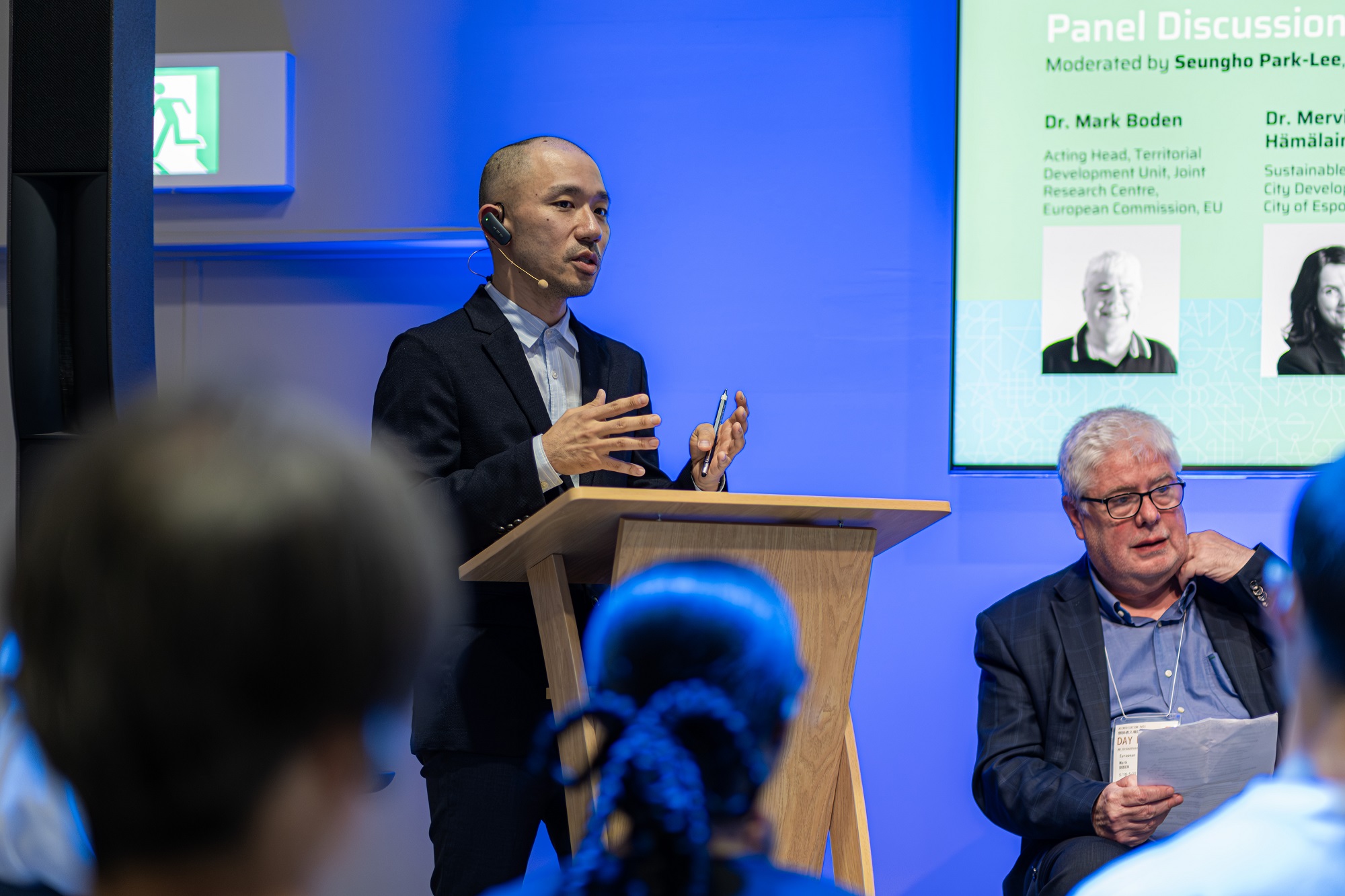
Professor Seungho Park-Lee (left) served as the moderator for the forum, overseeing the discussion, while Dr. Mark Boden (right) participated in the panel.
Professor Seungho Park-Lee served as the moderator for the forum, guiding discussions with insights such as, “All cities are constantly changing,” and emphasized the importance of ongoing urban transformation through the integration of design, technology, and citizen participation.
During the expo, Professor Kim showcased the project to stakeholders, receiving recognition for UNIST’s research efforts to tackle regional depopulation. He expressed commitment to expanding research initiatives that involve local citizens in shaping the future of their cities.
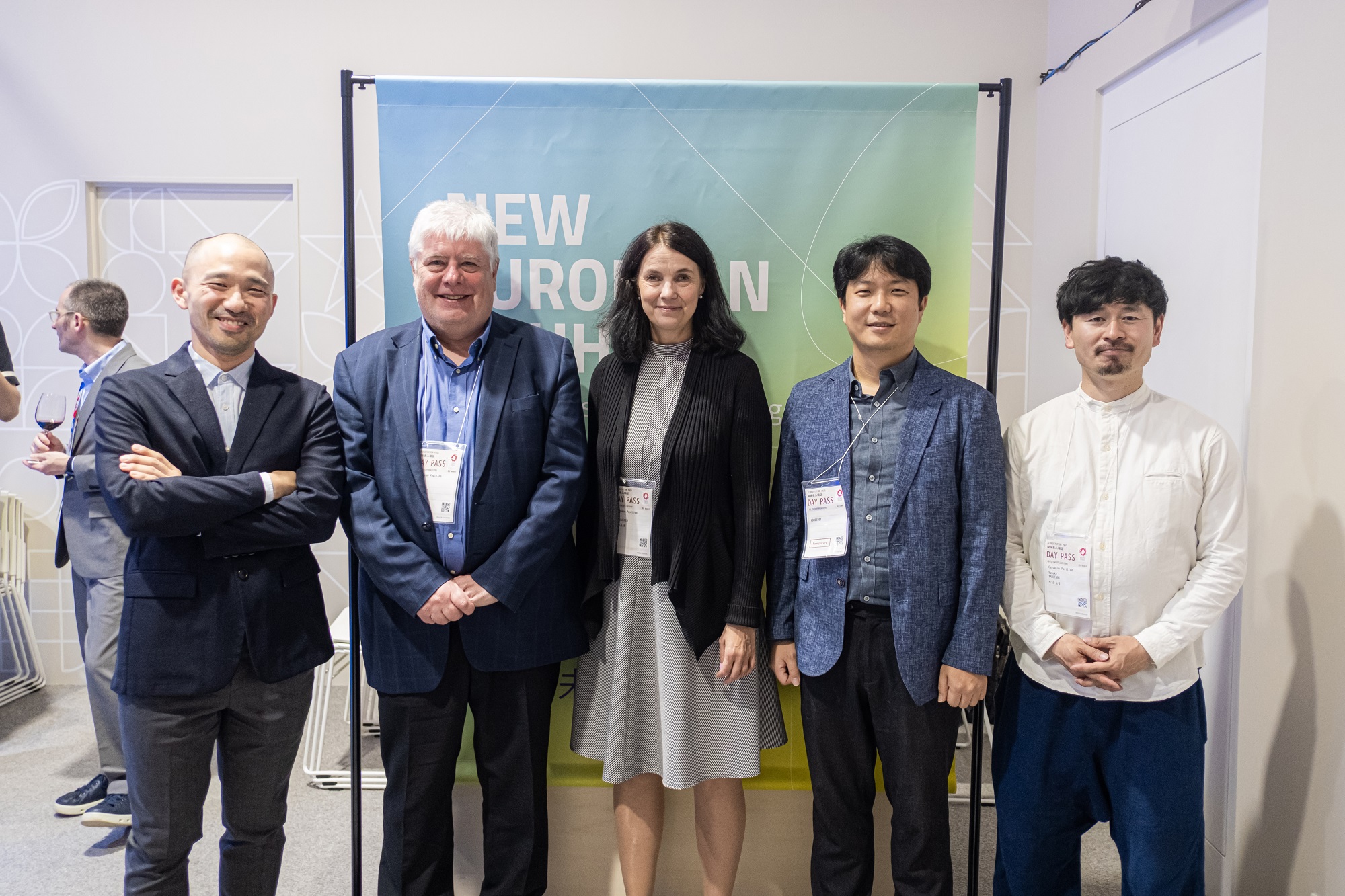
The panelists at the forum took a group photo, featuring Professor Seungho Park-Lee, Dr. Mark Boden, Dr. Mervi Hämälainen from Espoo City, Finland; Junior Professor Yusuke Yabutani from the University of Toyama, Japan; and other distinguished experts.
Additional speakers included Dr. Mark Boden from Joint Research Centre European Commission, EU and Dr. Mervi Hämälainen from Espoo City in Finland, as well as Junior Professor Yusuke Yabutani from the University of Toyama in Japan.
Dr. Boden emphasized the importance of implementing culturally sensitive, data-driven urban policies that recognize the unique histories and identities of European cities. Dr. Hämälainen shared Finland’s innovative use of AI and virtual reality technologies to enhance urban living conditions, particularly for foreigners and individuals with disabilities. Meanwhile, Professor Yabutani highlighted the value of community-driven approaches to designing urban networks, aiming to effectively tackle challenges such as population decline and an aging population.
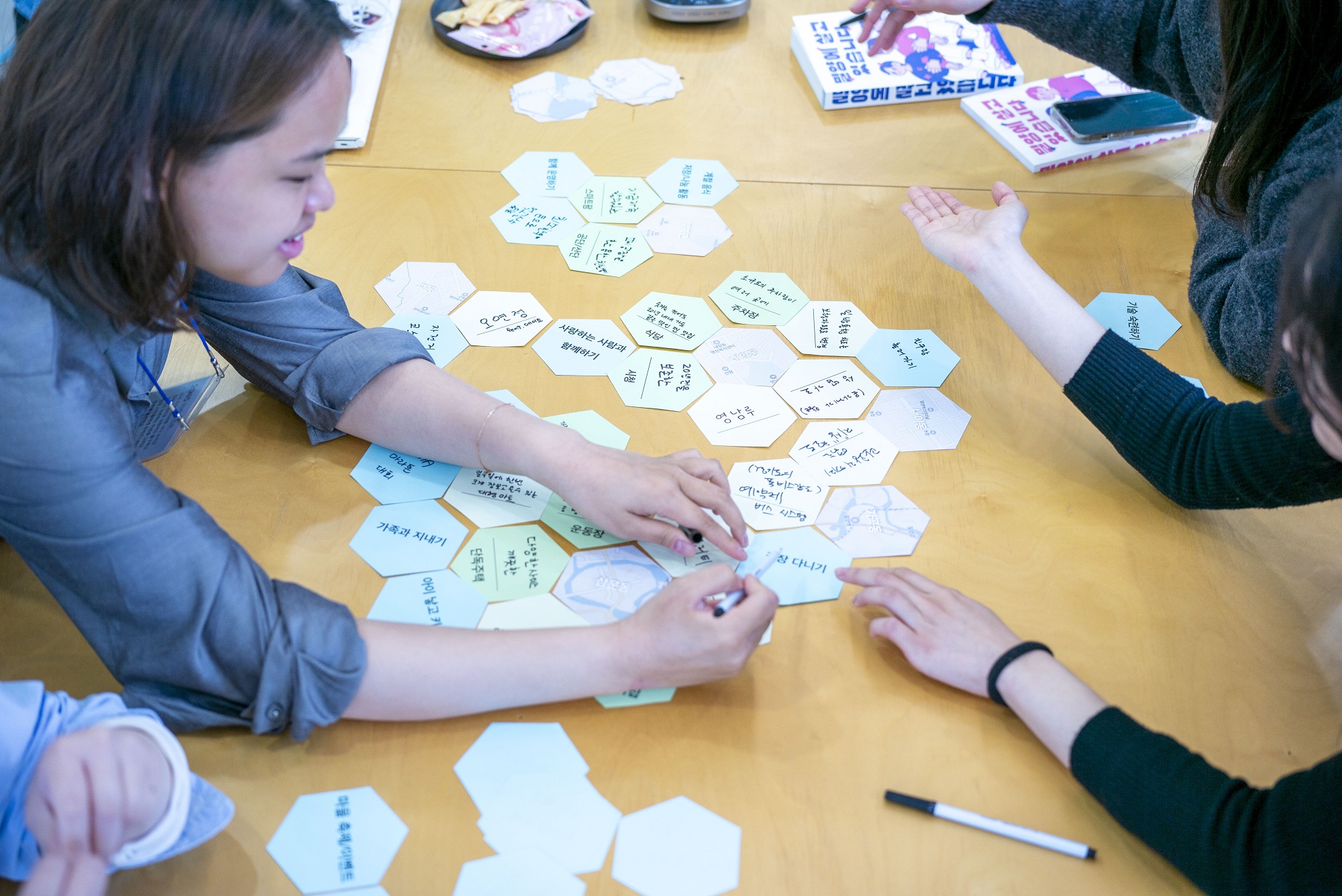
Participants of the Basic Research Laboratory (BRL) Support Project are conducting the Future Citizen Workshop.
Meanwhile, supported by the the National Research Foundation of Korea (NRF)’s “Basic Research Program for Light-Sizing Technologies to Address Local Extinction,” UNIST researchers are conducting citizen-participation-based urban planning projects in Miryang and Andong. They visit these cities weekly, engaging residents in envisioning and designing future urban environments.


